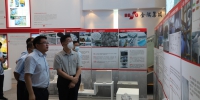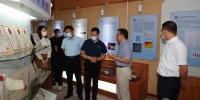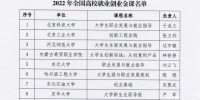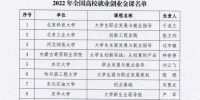[国际在线]黎旺明:China’s Contribution is Critical to International Nuclear Security
On April 5 2009, US President Barack Obama delivered a high-profile speech in Prague and singled nuclear terrorism out as “the most immediate and extreme threat to global security”, and announced “a new international effort to secure all vulnerable nuclear material around the world within four years.”
One Year later, on April 12-13 2010 in Washington DC, President Obama hosted the first Nuclear Security Summit (NSS), discussed with world leaders from 47 countries and 3 international organizations and issued a detailed Washington Work Plan to advance nuclear security. Since then, the second and third NSS have been held in Seoul in 2012 and in Hague in 2014 respectively. From March 31 to April 1 2016, Washington DC will witness the fourth and final edition of NSS during Obama’s Presidency.
Started with lofty ambitions, NSS did achieve several key nuclear security goals, such as minimize the use of highly enriched uranium, and bolster security at nuclear facilities through enhanced national regulations and implementation of best practices. However, this is far from enough, more work are need to be done.
On March 21st, Belfer Center for Science and International Affairs of Harvard Kennedy School released a report and tell a worrying story that, the risk of nuclear terrorism remains very real, but how to prevent it is at the crossroads of continuous improvement or dangerous decline, and NSS 2016 will determine the future of nuclear security. Washington Post journalists David Nakamura and Steven Mufson described Obama Administration’s nuclear security efforts “has had limited success”, and “this week’s gathering is one of the president’s final chances to restore momentum to the project.” Pulitzer Prize Winner R. Jeffrey Smith even predicated that President Obama will left office with a “not so glowing” nuclear security legacy. Also making things more, another nuclear superpower Russia has decided not to attend NSS 2016 amid tensions with US.
Amid so much uncertainties at such a fraught time, China’s participation become even more critical. China’s contribution and proposal to international nuclear security is eagerly anticipated and closely watched by the summit attendees.
China Pumps Confidence
President Xi Jinping’s participation clearly showcased China’s commitment in strengthening global nuclear security. On the eve of the NSS 2016, the People’s Daily published an important commentary, reiterated Xi’s speech in NSS 2014 that, “When brightness march forward one inch, darkness will step back one inch “, and emphasized that “China will continue participating the global nuclear governance, work with other countries to build a community of shared destiny on nuclear security, and deliver more significant contribution to improve the well-being of the humankind.”
2016 maybe the final edition of Nuclear Security Summit, but it’s not the end of the nuclear security efforts. China supports the International Atomic Energy Agency (IAEA) to play a leading role to improve global nuclear security. After NSS 2016, IAEA will hold the inaugural Nuclear Security Ministerial Meeting this December in Vienna, Austria. China’s proposals and commitment, combined with IAEA’s leadership and expertise will definitely pump confidence to shape a more fair, collaborative and win-win international global nuclear security architecture in the future.
China Showcases Achievements
In the last six decades, China has built an excellent track record of nuclear security, which enable China to play a more significant leadership role during NSS 2016, and provide relevant and useful experience for other NSS participating countries and international organizations.
In the international category, China ratified the Convention on the Suppression of Acts of Nuclear Terrorism, the Convention on the Physical Protection of Nuclear Material and its amendment, strictly implemented the resolutions passed by the UN Security Council, worked closely with International Atomic Energy Agency, and provided training, consulting and other services to enhance international communication and cooperation.
In the domestic category, China also strengthened the nuclear laws and regulations, nuclear material management, nuclear emergency preparedness, nuclear cyber-security and radiation monitoring.
China Enhances Sino-US Cooperation
2016 is also the US Election Year, both Republican and Democratic Presidential candidates took a tough stance and criticized China on RMB devaluation, cyber-security, intellectual property, and other sensitive issues. 2016 also witnessed escalated tensions around South-China Sea between China and US. All these are distractive or even harmful to the healthy development of Sino-US relations.
NSS 2016 provides a prefect opportunity for top leaders of both countries to exchange views, manage differences and build consensus. For example, both countries reached two agreements on nuclear security cooperation and climate change. Both countries decided to continue the annual bilateral dialogue to strengthen cooperation on nuclear security after NSS 2016. Both countries will sign the Paris Agreement on April 22nd and take their respective domestic steps in order to join the Paris Agreement as early as possible this year. Both countries will support a successful G-20 Summit in Hangzhou this year, including strong climate and clean energy outcomes, and call on the G-20 countries to engage constructively in international cooperation on energy and climate change. All these agreements will help to reduce the unnecessary finger-pointing noise and focus on building a New-Model of Major-Country Relationship between China and US.
Looking forward, the safe and peaceful use of nuclear energy is in the interest of every country and every people. NSS 2016 is only the starting point, China can utilize its own nuclear expertise and make a much more significant contribution to the peace and development of the entire world.
(作者为中国人民大学重阳金融研究院项目主管)
原文链接:
[国际在线]黎旺明:China’s Contribution is Critical to International Nuclear Security
17:00 02.04.2016 人民大学



